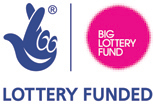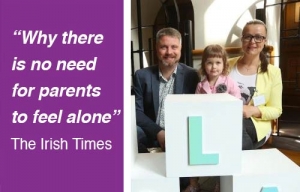The collaborative model is just what we needed. Lifestart has been able to integrate its service with our child protection and family support objectives and at the same time to offer a preventive service aimed at first time families which is able to identify children who might be at risk
Area Manager Children’s Services
 Since 2011 we have been working in close collaboration with Health Service Executive (HSE) health and social care colleagues and Tusla (Child and Family Agency) to integrate Lifestart/Tusla objectives of improving outcomes for children with the child protection and health promotion objectives of the HSE/Tusla.
Since 2011 we have been working in close collaboration with Health Service Executive (HSE) health and social care colleagues and Tusla (Child and Family Agency) to integrate Lifestart/Tusla objectives of improving outcomes for children with the child protection and health promotion objectives of the HSE/Tusla.
We have evolved an integrated model of family support that incorporates a highly effective, targeted needs-based intervention service, supported by preventive intervention focused on first-time parents.
Through this model we are able to reach and support vulnerable families to prevent and address factors which may put other children at risk.
Even with a highly dispersed population over 1,000 families are availing of the programme which is offered at the right time and delivered in the right place, i.e. in the child’s home.
the Lifestart Family Visitor is the first service provider that has been able to work with this family, we are seeing a huge improvement and in fact social work will now be able to close this case
Social Worker (Tusla)
A similar model of practice was introduced in the western area of Northern Ireland in 2014. This Lifestart/WHSCT partnership project focuses on delivering the Growing Child to families solely referred through Social Services.
The service is delivered by already employed WHSCT family support officers who have been trained and are supervised and quality assured by the Lifestart Foundation to comply with programme fidelity.
An advisory group of strategic and senior management was established to be responsible for all adaptations to the protocols and mechanisms that direct and govern the nature of the Lifestart intervention i.e. the referral, registration and reporting procedures.
Effective information sharing
Family Visitors keep records of each home visit and report back to Lifestart and relevant healthcare personnel as per protocols and procedures which are agreed with the partnership agencies.
These reporting mechanisms have been specifically designed to monitor the impact of the programme on children and families. All professionals, therefore, are kept informed of parental progress and any issues of concern.
Protection from harm and promoting wellbeing of all our service users is a key component of service delivery.
We are extremely happy with the progress made by the family and have noted significant improvements to routine, attitude and parenting by both parents. This has led to very positive outcomes for the children, there is noted improvements in communication between siblings as well as with parents, the children appear more content and Mum and Dad appear to be enjoying their children again. All in all it appears to be a less stressful environment for all compared to what we were faced with
Social Work Manager (WHSCT)
TinyStart Project
Also in 2015 a new innovative 5 year project began in partnership with TinyLife, the organisation for premature babies in Northern Ireland, funded through the Big Lottery’s Supporting Families Fund.
TinyStart is the only home visiting and community based project in Northern Ireland with an emphasis on holistic child development and unique practical family support for parents of premature babies.





